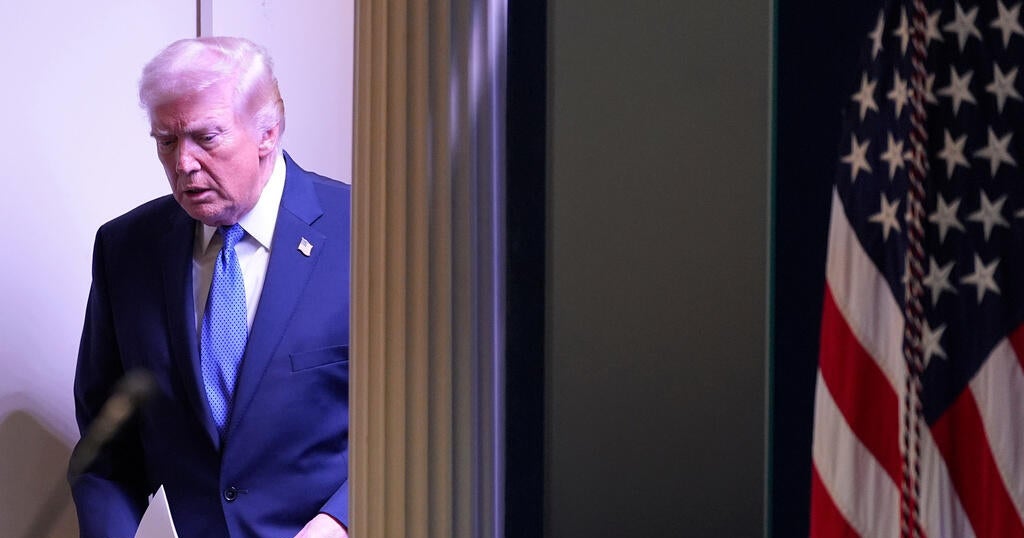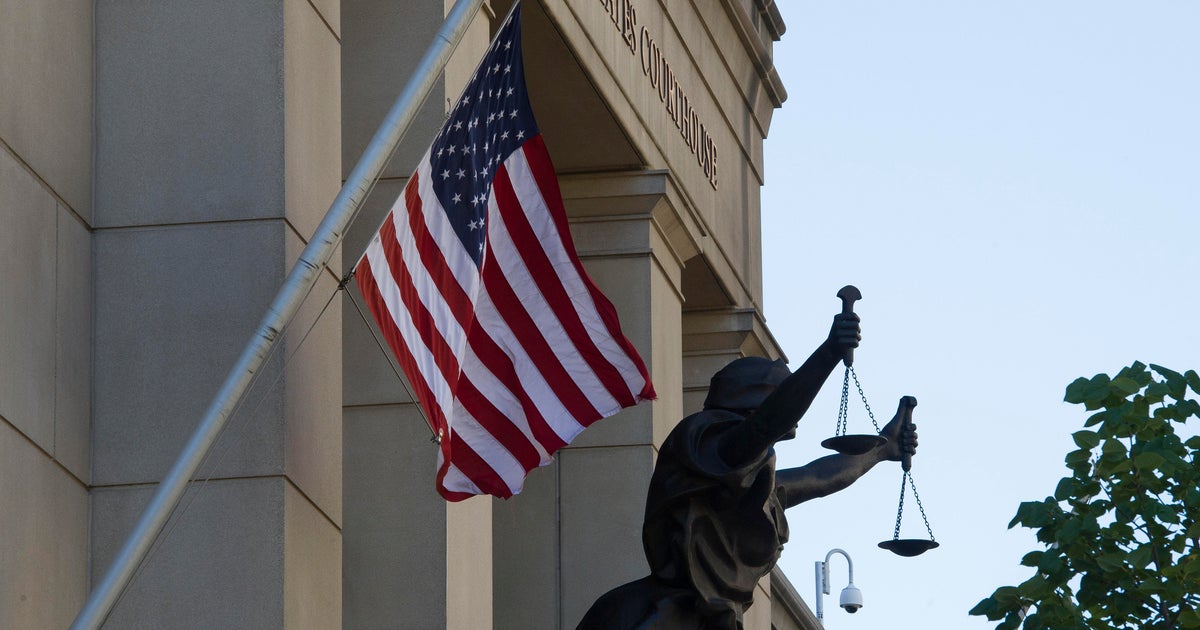What's in Trump indictment? Key takeaways from unsealed court docs
Former President Donald Trump has been indicted by a Manhattan grand jury on charges related to a "hush money" payment made just before the 2016 election to an adult film star, Stormy Daniels. At his arraignment Tuesday, he pleaded not guilty to 34 counts of falsifying business records in the first degree.
Trump's then-lawyer, Michael Cohen, has said he paid Daniels for her silence about an affair she claimed to have had with Trump, and he says he was subsequently reimbursed by the Trump Organization in a series of payments identified as retainer fees. Prosecutors investigated the falsification of business records related to the reimbursements made to Cohen. Trump denies having had sexual relations with Daniels and any wrongdoing.
The indictment lists dates with brief boilerplate descriptions of crimes corresponding to the allegedly false business records, while the accompanying statement of facts gives more detailed information about the reimbursement payments to Cohen and how Trump and his associates allegedly tried to conceal the reason for the Cohen payments and the damaging allegations about Trump during the 2016 campaign.
Here are some of the highlights from the indictment and statement of facts released by the Manhattan D.A.
Basis for the indictment
Trump is charged with 34 counts of falsifying business records in the first degree in a 16-page indictment that was unsealed Tuesday as Trump appeared in a Manhattan courtroom for his arraignment.
The basis of the indictment is the falsification of business records when Trump reimbursed Cohen for payments made to Daniels. Falsifying business records can be charged as a misdemeanor or felony under New York penal law, depending on the alleged circumstances. The Manhattan District Attorney's Office charged Trump with felonies on the grounds that the conduct was intended to aid another crime — violating election laws.
CBS News legal contributor Jessica Levinson pointed out on CBS News that the 34 counts in the indictment represent 11 different "hush money" payments in three parts: invoice, ledger and the check. For one of the payments, she noted, there are apparently two ledger entries.
According to the statement of facts, "The defendant DONALD J. TRUMP repeatedly and fraudulently falsified New York business records to conceal criminal conduct that hid damaging information from the voting public during the 2016 presidential election."
"Catch and kill" timeline
The statement of facts contains a timeline during which the former president is alleged to have engaged in a practice known as "catch and kill," which involved buying negative stories in an effort to keep them from being published. From August 2015 through December 2017, the statement of facts says Mr. Trump "orchestrated a scheme with others to influence the 2016 presidential election by identifying and purchasing negative information about him to suppress its publication and benefit the Defendant's electoral prospects."
Story about child born out of wedlock suppressed
According to the statement of facts, in October or November of 2015, then-CEO of American Media Inc. David Pecker — who had an agreement with Trump to act as his "eyes and ears" and publish negative stories about his rivals — learned that a former Trump Tower doorman was trying to sell information about a child that Trump had allegedly fathered out of wedlock, according to the statement of facts. AMI negotiated with and paid the doorman $30,000 to acquire the exclusive rights to the story. AMI then falsely characterized the payment in the company's records.
When AMI later concluded the story wasn't true, the CEO wanted to release the doorman from the agreement. But Cohen instructed the CEO not to release the doorman from the contract until after the 2016 presidential election.
Trump's "thank you" to David Pecker
Trump invited Pecker to his inauguration and later invited him to the White House for dinner "to thank him for his help during the campaign" in suppressing stories from the doorman and Karen McDougal, who was paid $150,000 to stay quiet about an alleged sexual relationship with Trump, according to the statement of facts.
Payments to Michael Cohen and potential violation of tax law
The statement of facts also describes the planning that went into reimbursing Cohen for the wire transfer to Daniels. In January 2017, Trump Organization chief financial officer Allen Weisselberg and Cohen met to discuss how the lawyer would be reimbursed for the payment to Daniels. The two agreed that Cohen would be repaid $180,000 for the $130,000 hush money payment, plus a separate $50,000 payment that Cohen claimed as a separate reimbursement. Weisselberg then doubled the payment so that Cohen "could characterize the payment as income on his tax returns, instead of reimbursement." Weisselberg also paid another $60,000 to Cohen as a supplemental year-end bonus.
Cohen sent invoices to Trump via the Trump Organization, claiming to have a retainer agreement when "there was no such retainer agreement" and Cohen "was not being paid for services rendered in any month of 2017," the statement of facts said. Trump and Cohen met in the Oval Office in early February 2017 "and confirmed this repayment arrangement."
The payments stopped after December 2017.
Pressure campaign on Cohen
After the FBI executed a search warrant at Cohen's residences and office in April 2018, Trump and others "engaged in a public and private pressure campaign to ensure that Lawyer A [Cohen] did not cooperate with law enforcement in the federal investigation."
On Twitter, Trump encouraged Cohen not to "flip," and another lawyer approached Cohen and "offered to represent him in the interest of maintaining a 'back channel of communication'" with Trump. In the ensuing months, the unnamed lawyer kept encouraging Cohen not to cooperate with the investigation.
"The whole objective of this exercise by the [federal prosecutors] is to drain you, emotionally and financially, until you reach a point that you see them as your only means to salvation," the lawyer wrote to Cohen.
After Cohen pleaded guilty in August 2018, Trump criticized him on Twitter.




